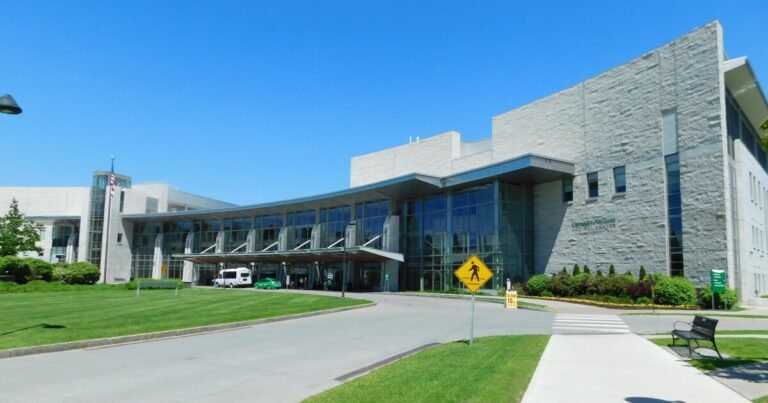The Green Mountain Care Board oversees Vermont’s medical facilities. It has been holding community meetings in the state’s 14 hospital regions to provide information and get feedback on transforming Vermont’s health care system.
In 2022, the Vermont Legislature passed Act 167 mandating reform of the state’s health care system. The Green Mountain Care Board has been holding community meetings to get input and hired a consultant to draft a transformation plan.
Board Chair Owen Foster told those attending a recent virtual meeting that rural hospitals, including those in Vermont, are in crisis.
“Some of Vermont’s independent providers cannot afford to practice in Vermont. In 2023, nine of 14 hospitals in Vermont were in the red with negative operating margins, which is especially troubling because the prior year, the Care Board approved hospital change-in-charge increases of over 10 percent in an effort to keep hospitals afloat. It did not work and it will not work,” Foster said. “Rural hospitals nationwide are losing money and in response they cut services and they are closing at an alarming rate which thrust communities they serve into a crisis. We do not want to see that chaos happen to any community in Vermont. To turn things around we will need to be proactive and bold.”
The state legislature also required the Green Mountain Care Board to retain a third-party independent expert to develop recommendations for hospital transformation. Oliver Wyman’s Health and Life Sciences Practice Partner and Chief Medical Officer Dr. Bruce Hamory is a health systems design expert. He told attendees that health care in Vermont is too expensive and the system is in disarray.
“There are difficulties in getting timely appointments to doctors and for surgery. Trying to find a primary care physician can take over a year. Transportation is an issue, both for people needing to get to urgently needed care and those needing to get home. Ambulance services in rural areas may be delayed,” noted Hamory. “Equitable access in healthcare services is an issue for many in Vermont. On the affordability front, there have been major increases in both health insurance premiums and in out-of-pocket expenses, making use of health care out of financial reach even for many with good Insurance.”
Vermont Agency of Human Services Director of Health Care Reform Brendan Krause noted this is the first phase of a process to reform the state’s health care system.
“We’re going to be beginning a process after the conclusion of this first phase of work to collaborate both with the hospitals and with the Green Mountain Care Board and others, to take some of the recommendations that have been made for the various hospitals and for the statewide recommendations, to analyze them in greater depth so we understand the impact in terms of cost and access that they would have in the individual communities, and then begin to prioritize those potential interventions and reforms and transitions, so that we can start to put together a plan in concert with the communities and with the hospitals, in order to make some of those needed changes to improve the stability and quality and outcomes of the healthcare systems,” Krause said.
Many of those who provided input were lawmakers, as well as health care advocates and workers. Former hospital and nursing home social worker Mary-Alice Bisbee said while many problems and solutions had been discussed, one key potential reform was not mentioned.
“I haven’t heard the words single payer being used. Universal health care. There are hundreds and thousands of Vermonters and people all across this country that are working for that big change,” Bisbee asserted. “You’ve found out what the problems are, but so many of us know that we need, really need, single payer health care.”
A final report from the consultants on health care system reform is due to the Green Mountain Care Board in the fall.


